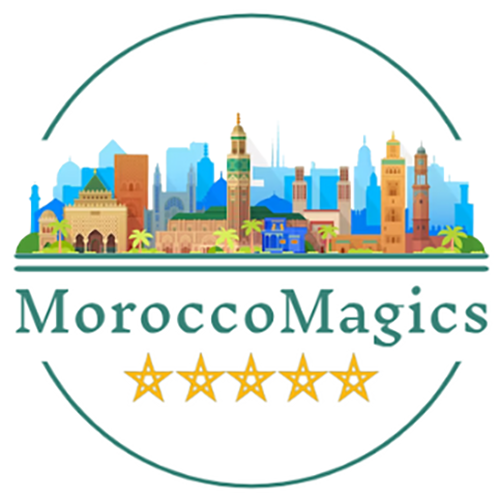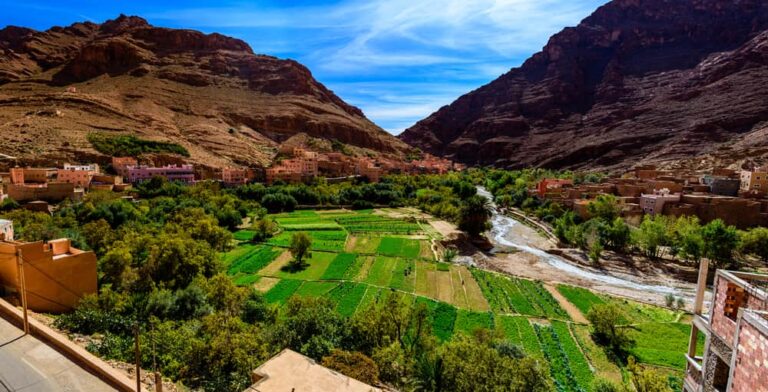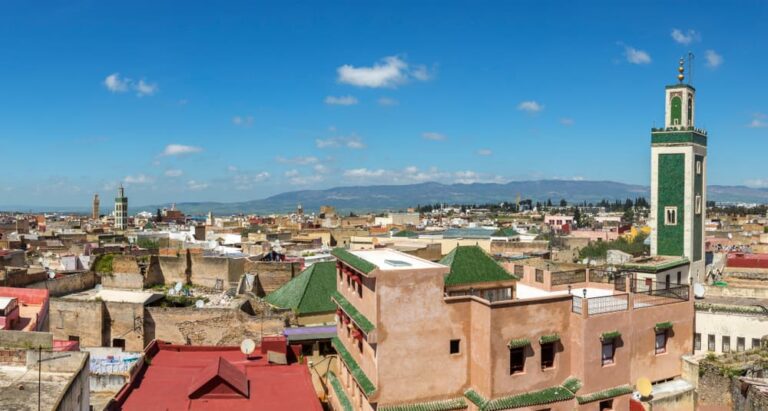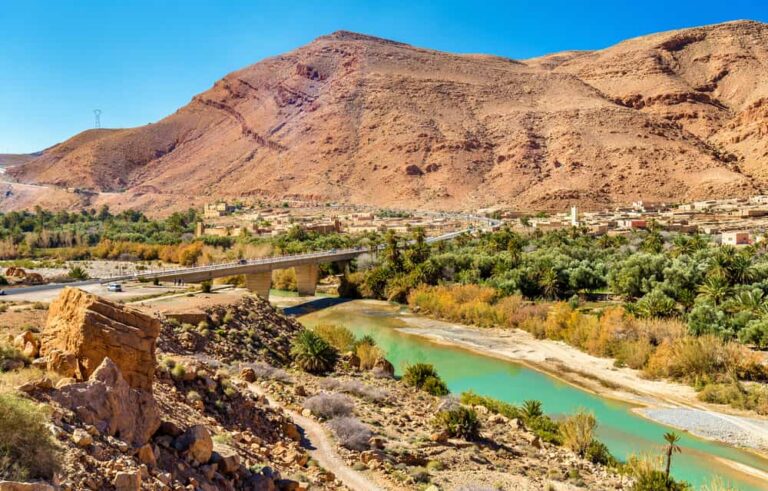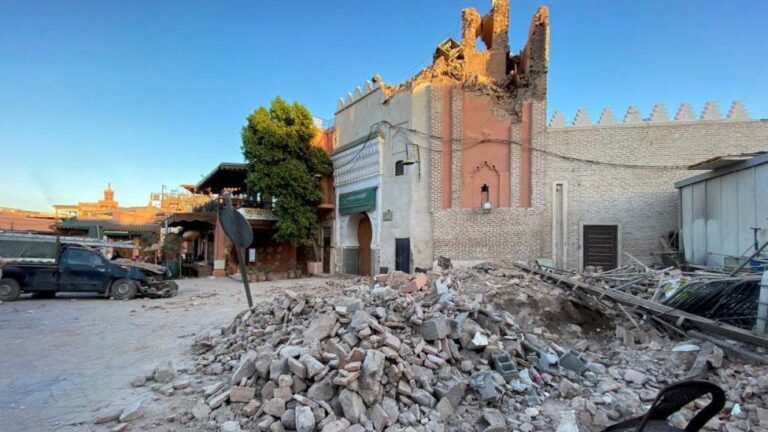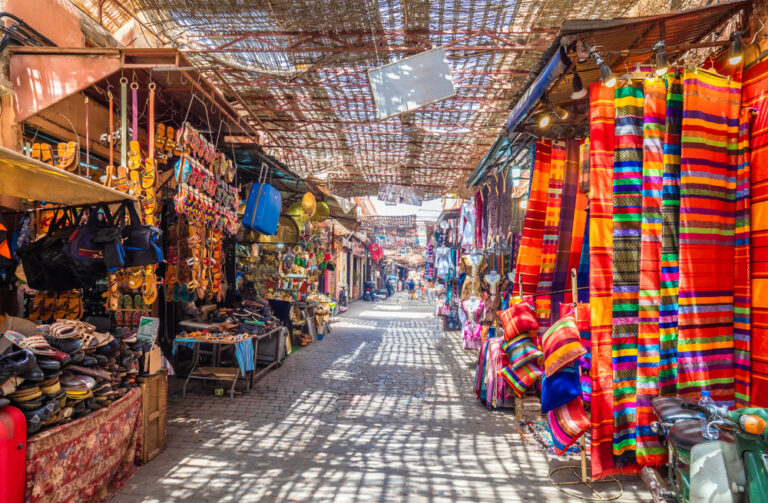Navigating Morocco’s Time Zone and Daily Routines
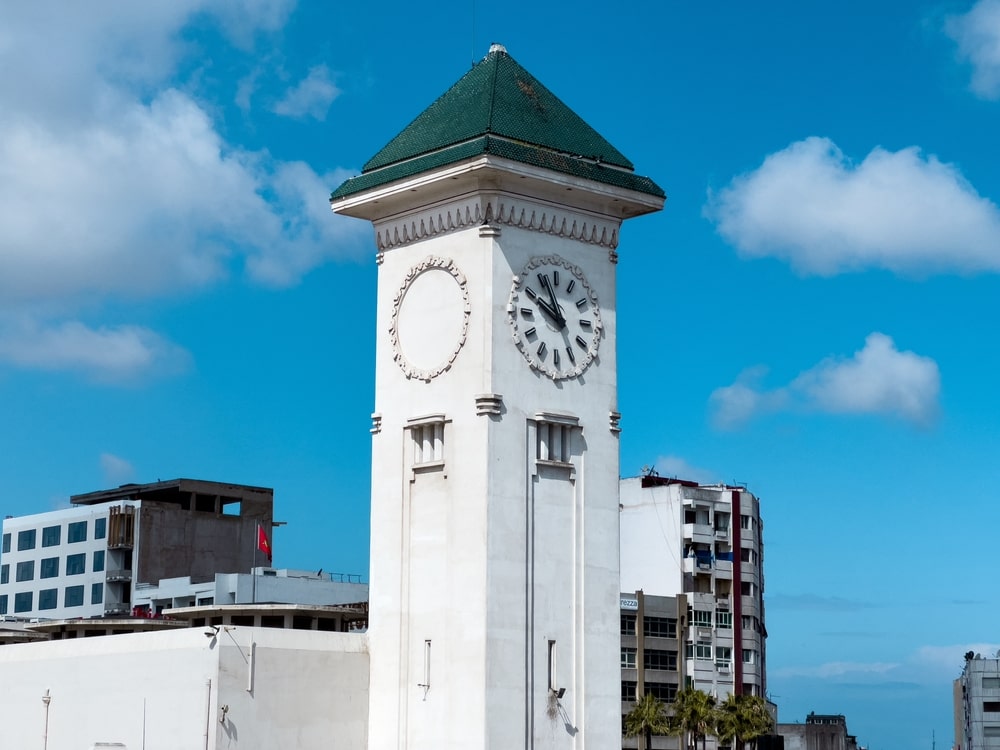
Understanding time zones and local time practices in Morocco is important for travelers and residents alike. Knowing the time zone helps you keep track of time differences, plan your activities, and avoid confusion. It is beneficial for scheduling calls, meetings, and travel plans. This guide will help you understand Morocco’s time zone, daylight-saving practices, and local time customs.
Morocco is in the Western European Time Zone. This means it shares the same time as countries like Portugal and the United Kingdom. However, it’s important to know that Morocco has its unique practices regarding time changes and local customs.
In the following sections, we will explore Morocco’s time zone in more detail. We will observe how daylight saving time is observed and discuss various local time practices.
Time Zone in Morocco
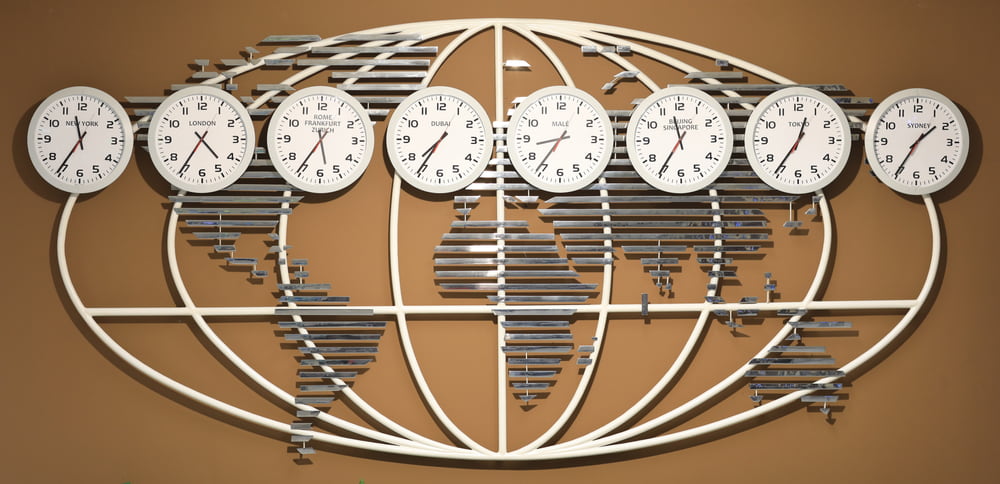
Morocco follows the Western European Time Zone (WET), which is the same as Greenwich Mean Time (GMT+0). This time zone means that Morocco shares its time with countries like Portugal and the United Kingdom during the winter months. However, there are some unique practices regarding time changes in Morocco that are important to understand.
Historically, Morocco has experimented with daylight saving time. This practice involved moving the clocks forward by one hour during the summer months to make better use of daylight. For many years, Morocco would switch to Western European Summer Time (WEST, GMT+1) from the last Sunday in March to the last Sunday in October. This change helped people enjoy longer evenings and conserve energy.
In October 2018, Morocco made a significant change to its timekeeping practices. The government decided to remain on Western European Time (GMT+1) throughout the year, eliminating the need for seasonal clock changes. This decision was made to provide more stability and to align better with international business hours, especially with Europe.
However, there is one important exception to this rule: the holy month of Ramadan. During Ramadan, Morocco temporarily switches back to standard time (GMT+0). This change is made to shorten the fasting hours for Muslims, as sunset comes earlier under GMT+0, allowing people to break their fast sooner. This switch usually happens a few days before Ramadan begins and lasts until the end of the holy month, after which Morocco returns to Western European Time (GMT+1).
The decision to stay in a fixed time zone has both benefits and challenges. On the positive side, it reduces confusion related to clock changes and helps maintain a consistent schedule for businesses, schools, and government offices. It also aligns Morocco more closely with the timekeeping practices of its major trading partners in Europe.
However, the annual switch during Ramadan can still cause some confusion for travelers and businesses. It is important to be aware of this change if you are planning to visit Morocco or conduct business there during this period. Many digital devices automatically adjust for time zone changes, but it is always good to double-check and ensure your devices are set correctly.
In summary, while Morocco generally follows Western European Time (GMT+1) year-round, the temporary switch to standard time (GMT+0) during Ramadan is a unique practice. Understanding this timekeeping system is essential for effective planning and avoiding any confusion during your stay in Morocco.
Daylight Saving Practices
Daylight saving time was once common in Morocco. The clocks would be moved forward in the summer and moved back in the winter. This practice helped people enjoy more daylight in the evenings, making better use of natural light and saving energy.
However, in recent years, Morocco decided to stop changing the clocks. Now, Morocco stays on Western European Time (GMT+1) all year round, except during the holy month of Ramadan. During this month, the time is set back by one hour to GMT+0. This change is made to help those who are fasting by making the fasting hours shorter.
The switch back to standard time during Ramadan usually lasts for about a month. After Ramadan ends, Morocco returns to its regular Western European Time (GMT+1). This change can be a bit confusing, but it is only temporary and happens once a year.
Understanding Morocco’s daylight saving practices is important for planning activities, scheduling meetings, and avoiding confusion with time differences.
Time Difference with Major Cities
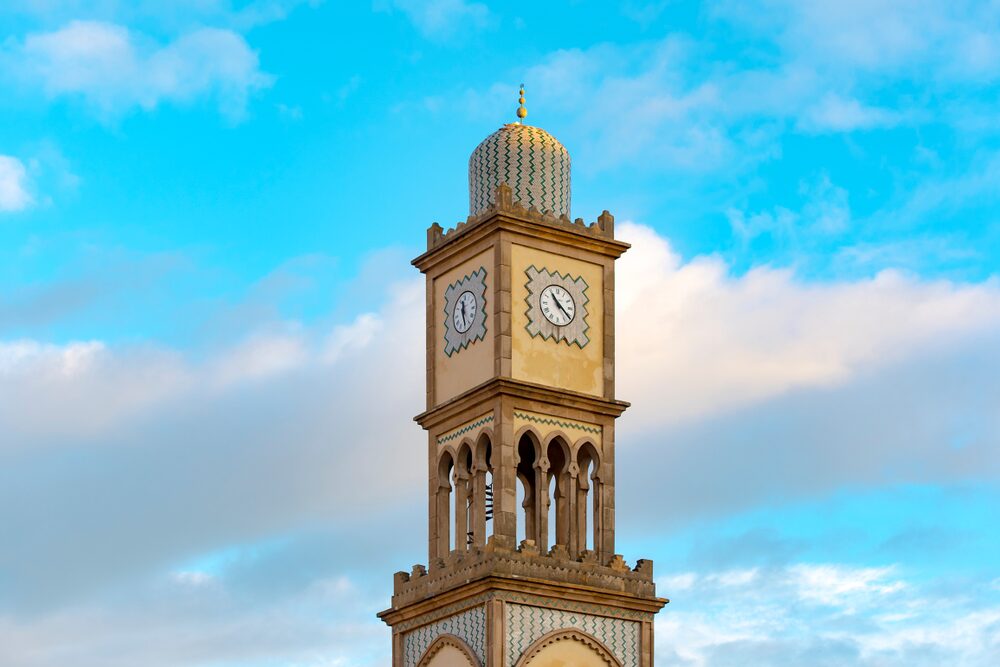
When you travel or call friends and family in different parts of the world, knowing the time difference is important.
Morocco is at the same time as London during the winter months. This means that there is no time difference between Morocco and London from October to March. However, when London moves to daylight saving time in the summer (March to October), it is one hour ahead of Morocco. So, if it is noon in London, it is 11 AM in Morocco.
For New York, Morocco is usually five hours ahead. This means that when it is noon in New York, it is 5 PM in Morocco. However, this time difference can change when Morocco switches to standard time during Ramadan. During this period, Morocco is only four hours ahead of New York.
Tokyo is another major city with a significant time difference. Morocco is nine hours behind Tokyo. This means that if it is 9 AM in Tokyo, it is midnight in Morocco. Understanding these time differences can help you plan calls, meetings, and trips without confusion.
Local Time Practices
In Morocco, knowing local time practices can help you fit in better with daily life. Business hours in Morocco typically start at 9 AM and end around 6 PM. Some businesses might close for lunch, especially in smaller towns. In larger cities, you might find businesses open later in the evening.
Prayer times are very important in Morocco. Muslims pray five times a day, and these times can affect when shops and businesses are open. The call to prayer, known as the adhan, is heard from mosques throughout the day. Many businesses might close briefly for prayer, especially during the midday and evening prayers.
Public holidays also affect local time practices. During holidays, many businesses and government offices are closed, or they might have shorter hours. It is good to check the local holiday schedule when planning activities. Some of the major public holidays in Morocco include Eid al-Fitr, Eid al-Adha, and Independence Day.
Understanding these local time practices can help you plan your activities better and avoid any inconvenience during your stay in Morocco.
Practical Tips for Travelers
Adjusting to local time in Morocco can make your trip more enjoyable. Here are some tips to help you fit in with the local schedule.
First, try to get used to the time zone as soon as you arrive. Spend time outdoors in natural light to help your body adjust. This will help you avoid jet lag and feel more comfortable with the local time.
If you are traveling during Ramadan, be aware that many businesses and restaurants will change their hours. It is polite to be mindful of people who are fasting. Some restaurants might only open after sunset, and many shops may close early.
Prayer times are a special part of daily life in Morocco. You will hear the call to prayer five times a day. It can be a peaceful and beautiful sound. Many shops and businesses close briefly for prayer, so plan your shopping and dining around these times.
Business hours in Morocco are usually from 9 AM to 6 PM, but there can be a long break for lunch. This is especially true in smaller towns. In larger cities, you might find businesses open later.
Public transportation is a great way to get around Morocco. Buses and trains run on a set schedule, but it is a good idea to check the times in advance. During holidays, the schedules might change, so be sure to confirm your travel plans. Taxis are also widely available and can be a convenient way to travel, especially in cities.
By following these practical tips, you can make the most of your time in Morocco and enjoy a smooth and pleasant trip.
Conclusion
Understanding the time zone and local time practices in Morocco is important for making the most of your visit. Knowing the time difference with major cities can help you plan your communications and travel. Being aware of local customs, such as prayer times and business hours, will help you fit in and enjoy your stay.
Whether you are adjusting to the time zone, planning activities around prayer times, or navigating public transportation, this guide provides the information you need. For more details and updates, check official resources and local guides. Enjoy your time in Morocco!
